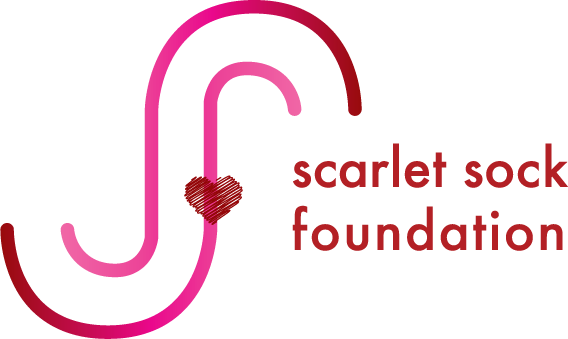“Our vision is to bring the conservatory experience to the Springfield schools, through a curriculum that builds literacy and academic success while simultaneously developing the essential social and emotional skills that make it all possible. ”
TheaterReaders Background
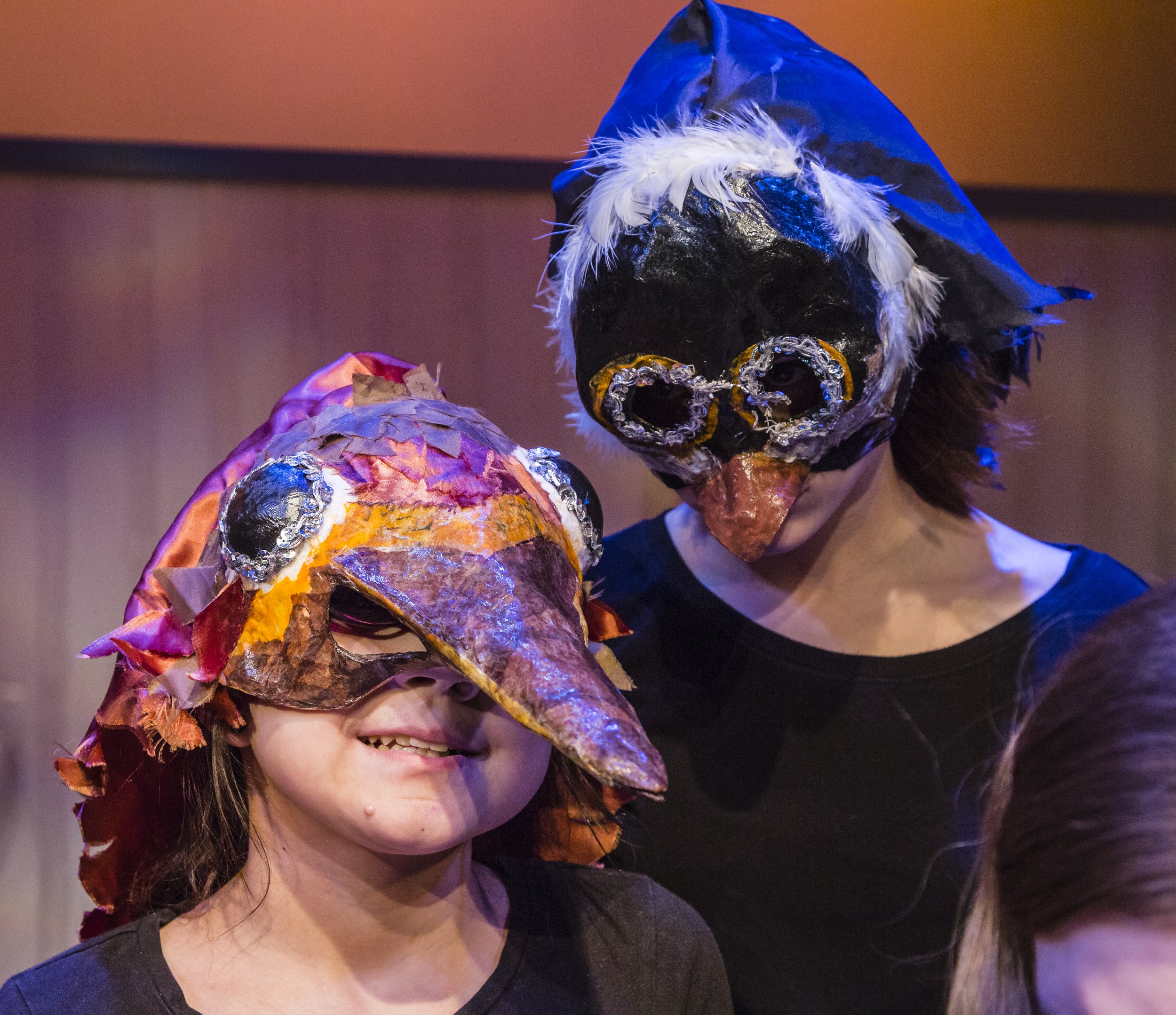
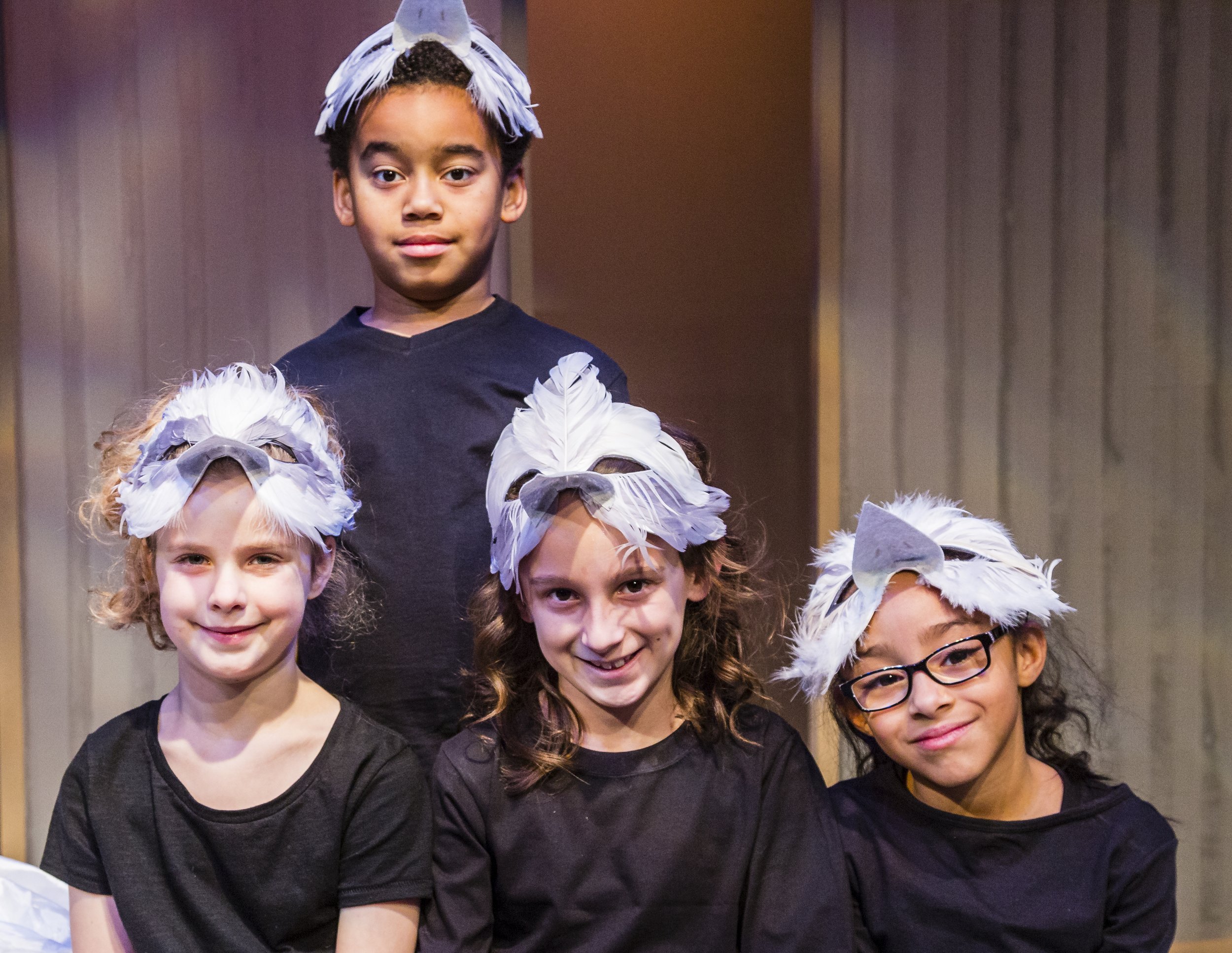
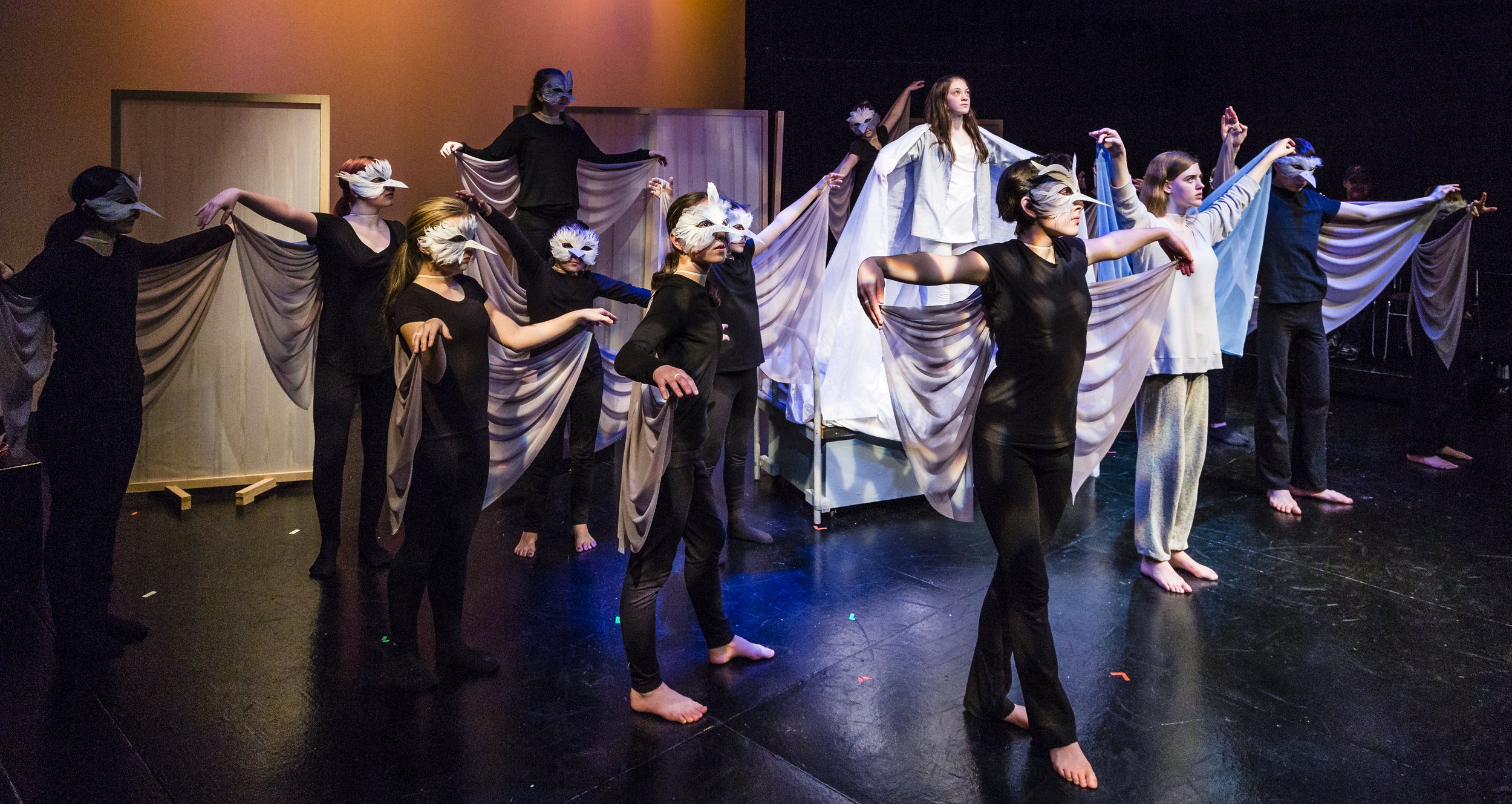
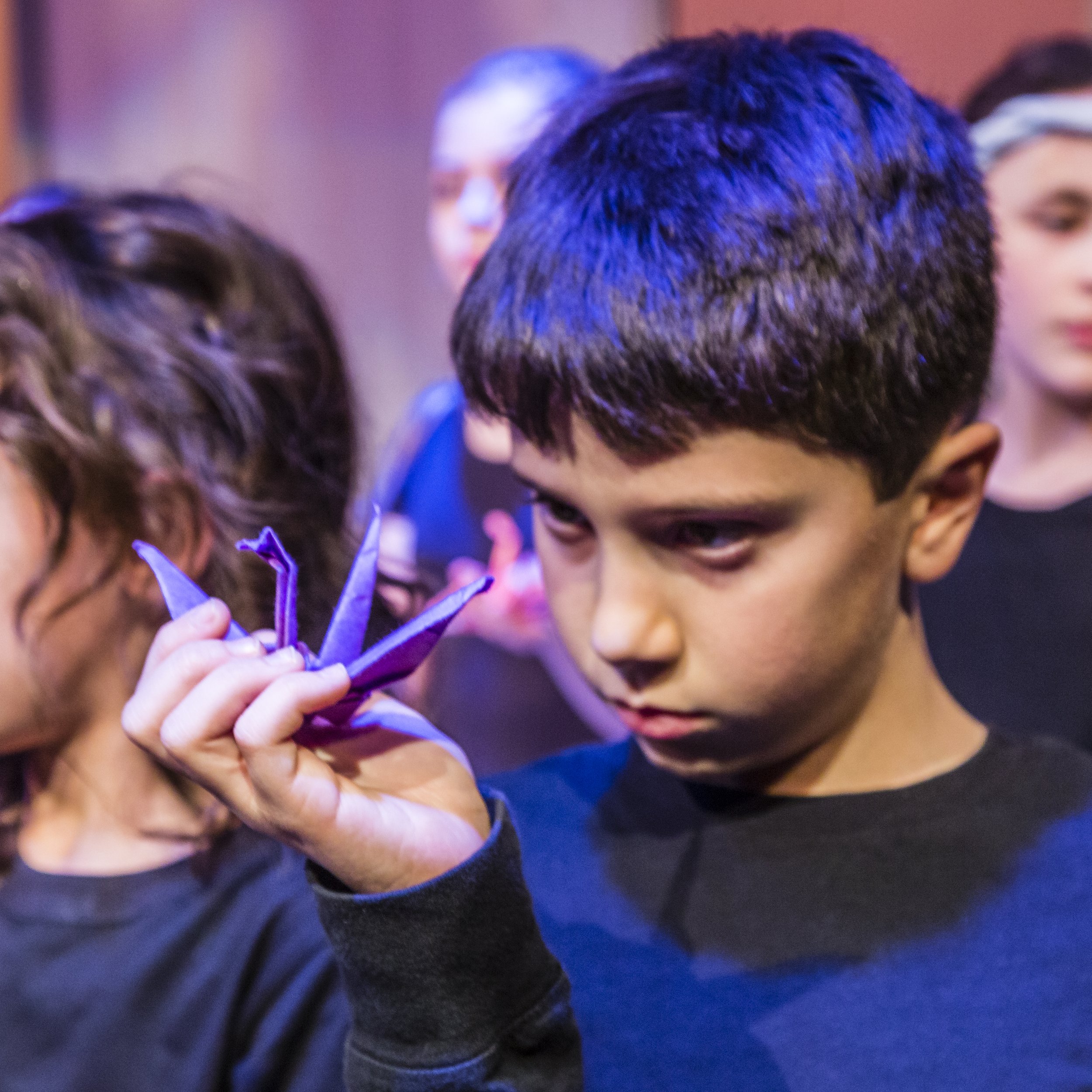
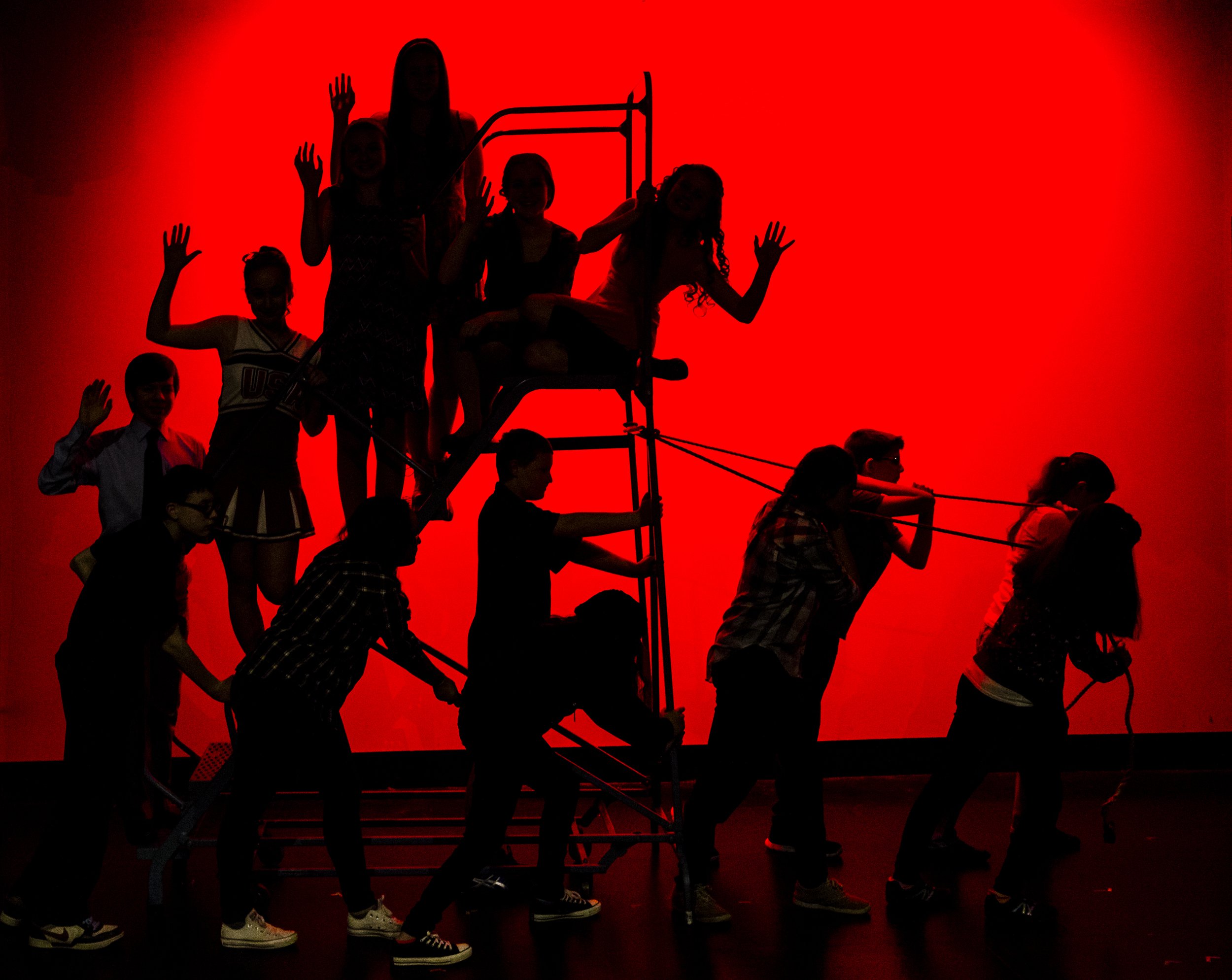
For 30 years, Drama Studio has provided a conservatory-style acting training program for hundreds of young people in our community. Our students grow not only in theatre training, but in life skills. The training at Drama Studio also seems to build unique pathways for our students academically. Intensive theatre training builds love of language, critical thinking, interpersonal skills, focus and confidence. Our students engage with a great variety of literature, write powerful original works, and gain vital "soft" skills that enable their success. In short, we have found that our training produces powerful readers and writers.
For many of our students, this is a revelation. Those that have not yet found academic success through traditional paths find that theatre unlocks the door to literacy. This exemplifies the cutting edge of current literacy research and practices, where emotional investment in reading and writing must come first, in order for literacy to flourish.
Our training also teaches students to value each voice, not just their own perspective. Local professors of education tell us our curriculum is the embodiment of literacy work, where students with learning, behavioral and emotional challenges find great success, and realize they are truly an essential and valued part of the community.
It has long been our dream to expand upon this, and reach many more students. Could we bring the full power of a thriving theatre conservatory to the students and teachers of Springfield? How might we, with a curriculum that builds readers, writers, thinkers, and caring community members help address the literacy crisis we face in Springfield? We have the resources of two hundred dedicated students and families who are a powerful support group for volunteering and role modeling. With plans for an expanded facility at 41 Oakland Street, we are poised for major growth to make that dream a reality.
Our Goals
To provide a program where students grow not only in theatre training but in life skills.
To use conservatory theatre training to build love of language, critical thinking, interpersonal skills, focus, and confidence.
To build self-identity as successful readers and writers in TheaterReader students.
To build the essential foundations of literacy through agency, purpose, and fun, the core components of good theatre training.
To support the teaching of such core-curriculum topics of poetry, fables, mythology, and personal narrative as well as critical thinking, expressive speech and effective communication.
To collaborate with college faculty to build into the Theater Readers program opportunities for research, observation, pre-practicum placements, lab school options onsite at Drama Studio and a different way of working with neuro-diverse populations.
For more in-depth information about the curriculum.
-
Students will grow in their abilities to:
● Understand the power of words and images to transform lives and provide insight into the experiences of others and understanding of cultures and historical periods.
● Read and comprehend a range of increasingly complex texts and media written for various audiences and purposes.
● Generate open-ended questions and seek answers through critical analysis of text, media, interviews, and/or observations.
● Communicate ideas effectively in writing to suit a particular audience and purpose.
● Communicate ideas effectively in discourse and oral presentations to suit various audiences and purposes.
● Begin to self-identify as readers and writers.
In addition to overall program goals, skills will develop in the following areas:
● 3.RL.1 -- Ask and answer questions to demonstrate understanding of a text, referring explicitly to the text as the basis for the answers.
● 3.RL.2 -- Recount stories, including fables, folktales, and myths from diverse cultures (dependent on which sources are selected for each subsequent unit); determine the central message, lesson, or moral and explain how it is conveyed through key details in the text.
● 3.RI.2 -- Determine the main idea of a text; recount the key details and explain how they support the main idea.
● 3.RL.10 -- By the end of the year, read and comprehend literature, including stories, dramas, and poetry, at the high end of the grades 2–3 text complexity band independently and proficiently.
● 3.RL.3 -- Describe characters in a story (e.g., their traits, motivations, or feelings) and explain how their actions contribute to the sequence of events.
● 3.SL.1 -- Engage effectively in a range of collaborative discussions building on others’ ideas and expressing their own clearly.
● 3.RI.6 -- Distinguish their own point of view from that of the author of a text.
● 3.W.3 -- Write narratives to develop real or imagined experiences or events using effective technique, descriptive details, and clear event sequences.
In terms of identifying as writers, students will gain skills in:
• Writing a real or imagined experience in a narrative. (3.W.3-Creating)
• Writing a narrative in response to something they have read. (3.W.3-Creating)
• Organizing their writing appropriately for task, purpose, and audience. (3.W.4-Analyzing) • Using dialogue and description to develop characters and events. (3.W.3-Creating)
-
Drama Studio’s Introduction requires a new way of thinking about words, self, and other students, including a new way of working with focus, awareness, and productive control of our “actor’s tools” (body, voice, emotion, experience, space, connections with others). It provides an orientation to the responsibility and the power of bringing words and characters to life. It creates an excited, eager self-identification as a writer.
In this introductory / ELA specific focus content program, we will be working with source texts provided by or requested by the teachers in this introductory unit. Duration of this unit will be evaluated by progress of students, and how it is supporting greater classroom work.
Essential Questions:
What makes a TheaterReader?
How is good theatre a form of good reading?
What do you and stories have to make the words come to life? To get the picture in the audience’s head? Whether they want it to or not? What are the Actor’s / Reader’s tools?
Structure:
Using content improv and forms below, each session will contain:
A. Introduction: discussion and setting of goals and questions
B. Warm Up: awareness of and development of skills in essential tools of a TheaterReader
C. Content: application of theatre forms and writing techniques, with the integration of source text. The fluidity between improv and text-based source will develop fluency with both forms (text reading and on-your-feet-bring-words-to-life), and develop the understanding that TheaterReaders see, hear, feel, taste, embody good writing on-page and stage.
-
ELA and Stem Curriculum Specific Residencies: TheaterReaders core offering is a unique collaboration with the teachers and staff of the partner school to work directly with their ELA and Stem curriculum, to directly support specific classroom units, reading sources and learning goals.
Additionally, TheaterReaders offers these specific units for schools to select:
Unit One: Introduction to TheaterReaders Approach and Practices
Unit 2: Descriptive Writing / Details to life
Unit 3: Poetry/Mythology
Unit 4: Personal Narrative Writing: Inside Out
Unit 5: Aesops Fables
Unit 6: Page to Stage
Contact Us
For more information or to start a partnership with TheaterReaders, please fill out this form.






